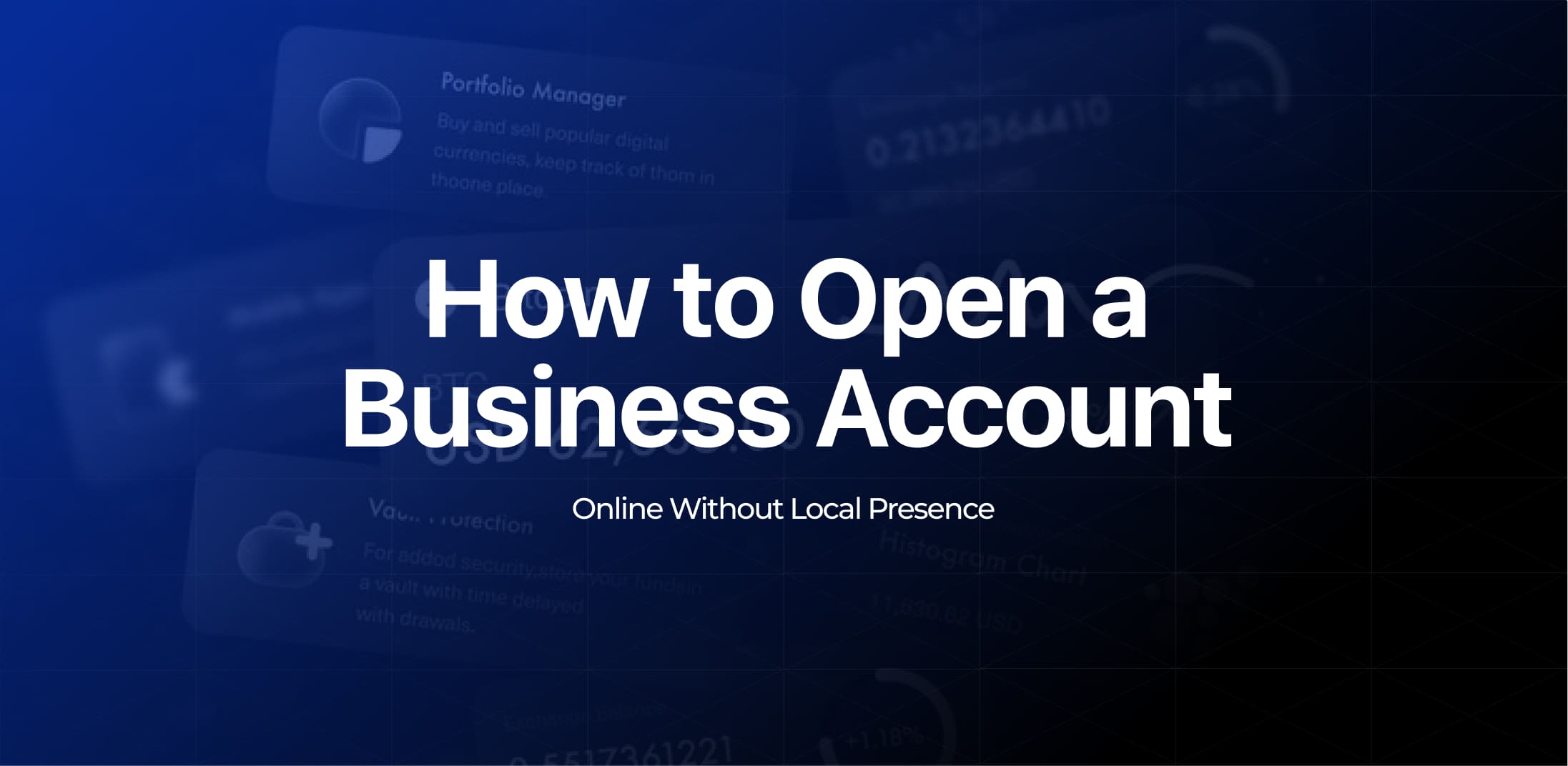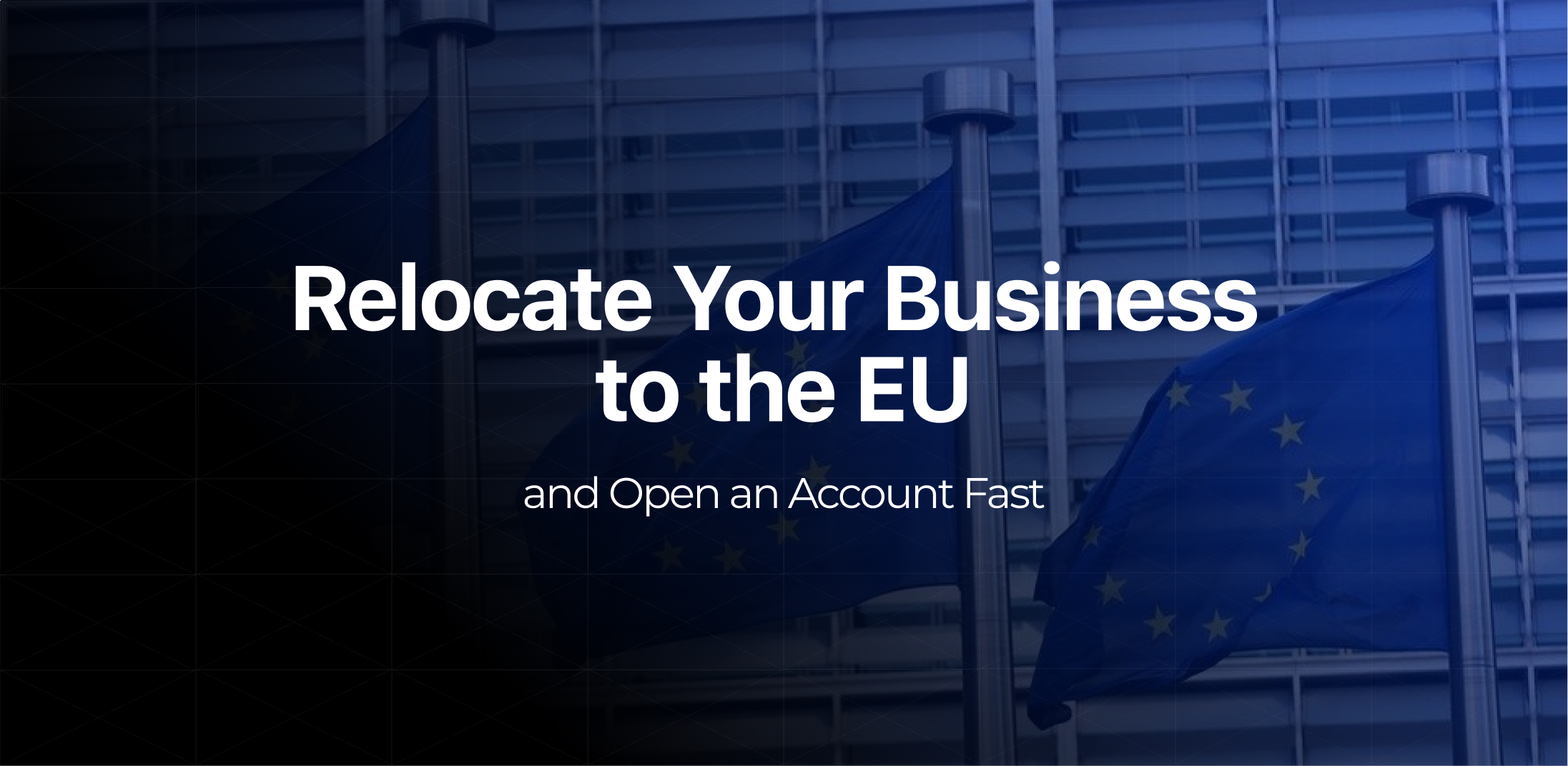In an increasingly interconnected and digital world, modern businesses are no longer limited by geographic boundaries. Startups, freelancers, and entrepreneurs are launching and scaling operations across global markets—often without setting foot in the countries they serve. This evolution has created a strong demand for international banking solutions that can keep pace with the agility of online enterprises.
Yet, securing a traditional business account abroad remains a significant challenge. Foreign banking systems often impose strict regulatory requirements, demand in-person verification, and involve extensive documentation—barriers that are particularly difficult for companies lacking a local presence. These obstacles can stall business growth and restrict access to vital financial services. Thankfully, innovative solutions are emerging.
FinTech companies, Electronic Money Institutions (EMIs), and virtual IBAN providers now make it possible to open business account online, enabling businesses to transact across borders with speed and efficiency—all without the need to be physically located in a specific country. This article provides a clear, actionable guide for those seeking to open a business account online without local incorporation, helping you explore available options and find the right fit for your global operations.
Why Businesses Need Accounts Without Local Presence

As businesses expand across international markets, the need to handle finances without a physical presence in each country has become increasingly important. Whether you run a SaaS company, an online store, or coordinate a distributed freelance team, having a business account that facilitates cross-border transactions is vital for smooth operations. Global teams, digital marketplaces, and international clients all require reliable, efficient payment systems.
Traditional banks often impose high fees, slow processing times, and rigid onboarding procedures that demand a local office or representative. In contrast, modern financial solutions offer digital accounts designed for flexibility, helping companies interact with global customers and partners more efficiently. In addition to operational convenience, these solutions bring measurable financial benefits.
Businesses gain quicker access to funds, better foreign exchange rates, and easier tax handling through specialized business accounts built for international use. Professionals like freelancers working with clients overseas, digital marketing firms with a global reach, or import/export companies managing multiple currencies all benefit from remote-access accounts. For such enterprises, a location-independent financial system is not just helpful—it’s essential for growth and competitiveness.
Traditional vs. Modern Banking Approaches
For many years, traditional banks were the primary route for opening a business account—but they often involve outdated processes. Physical branch visits, local address requirements, extensive paperwork, and face-to-face interviews are still standard procedures. These steps can become major roadblocks for digital businesses and companies operating internationally without a physical presence. Today, more agile alternatives are available.
Electronic Money Institutions (EMIs), neobanks, and FinTech platforms are transforming the way businesses handle finances. These innovative providers enable entrepreneurs to open an online business account quickly and remotely, eliminating the need to be physically present in the country of registration. The benefits are substantial: simplified onboarding, remote identity checks, multi-currency account options, and user-friendly digital tools.
These platforms are tailored for the needs of globally minded businesses, offering faster, more flexible, and more cost-effective solutions than traditional banks. Whether you’re launching a startup, managing a remote team, or scaling your international operations, turning to a digital provider for your online business account can streamline your financial processes and support your global growth strategy.
Requirements to Open a Business Account Remotely
Setting up a business account remotely is completely achievable if you’re well-prepared. Although FinTech platforms and Electronic Money Institutions (EMIs) make the process more accessible, there are still key criteria you need to fulfill for smooth and prompt account approval. The foundation is a legally established company in a recognized jurisdiction.
This could be an LLC, a corporation, or another legal form, requirements may vary based on the provider and your chosen country of incorporation. To meet Know Your Customer (KYC) and Anti-Money Laundering (AML) standards, you’ll typically need to provide:
- A certificate of incorporation or company register extract;
- Valid ID (passport or national ID) for directors and shareholders;
- Proof of residential address for the directors (such as a utility bill or bank statement);
- A brief description of your business activities or a basic business plan;
- Evidence of digital presence—like an official website or business profile.
Depending on your sector, additional compliance checks may apply. Industries such as crypto, adult services, or gaming are often subject to tighter regulations or exclusions. To accelerate the approval process, double-check that your documentation is current, legible, and consistent.
A clear business model and strong online presence can also boost credibility and help get your application over the line faster. With careful preparation, opening a remote business account can be a straightforward step toward global financial access.
Best Jurisdictions to Register Your Company for Remote Banking

Selecting the appropriate jurisdiction to register your company plays a crucial role in successfully opening a remote business account. Certain countries stand out due to their efficient regulations, advanced digital infrastructure, and strong alignment with modern banking solutions.
- United Kingdom (Ltd.). Widely favored by startups and small businesses, the UK combines trustworthiness with quick online registration and broad support from FinTechs and EMIs. However, businesses must navigate ongoing compliance and potentially complex tax obligations.
- Estonia (e-Residency). Estonia’s innovative e-Residency program allows entrepreneurs to create and manage an EU-based company entirely online. It’s perfect for digital entrepreneurs and distributed teams, although banking access may be limited, especially for high-risk sectors.
- Delaware (USA). Known for its favorable corporate laws and straightforward LLC formation process, Delaware provides good access to U.S.-based payment systems. Yet, foreign owners might encounter difficulties with traditional U.S. banks unless they use specialized FinTech providers.
- UAE (Free Zones). These zones offer tax benefits, international prestige, and increasing support from FinTech companies. Initial setup can be costly, and some free zones mandate a local presence or representative.
- Cyprus, Seychelles, BVI. These jurisdictions are often chosen for privacy and tax optimization. While they offer operational flexibility, opening business accounts can be more challenging due to stricter scrutiny by financial institutions.
Ultimately, the best jurisdiction depends on your company’s structure, banking preferences, and regulatory considerations.
Top FinTech Platforms and EMIs Supporting Non-Resident Business Accounts
For companies aiming to open a business account online without needing a local presence, several FinTech providers and Electronic Money Institutions (EMIs) offer flexible, user-friendly solutions designed specifically for non-resident businesses.
Wise Business stands out with its transparent pricing, low-cost international transfers, and multi-currency accounts featuring local IBANs in various currencies. It’s perfect for businesses handling frequent cross-border payments and offers a straightforward onboarding process without requiring a local address.
Payoneer offers comprehensive global payment services, including multi-currency receiving accounts, prepaid cards, and integration with major marketplaces. This platform is favored by freelancers, digital marketing agencies, and e-commerce entrepreneurs who need quick, dependable access to funds worldwide.
PaySaxas merges business account functionalities with robust multi-currency support and virtual IBAN solutions. It is geared toward startups and SMEs aiming to streamline international payments and foreign exchange management, all through a fully remote and smooth onboarding process.
Revolut Business provides a mobile-first banking experience featuring multi-currency accounts, business debit cards, and powerful API capabilities, tailored for tech-driven companies seeking versatile financial tools and automation.
Mercury focuses on U.S.-based businesses, delivering FDIC-insured accounts, no monthly fees, and advanced online banking services, making it a preferred choice for U.S. startups.
N26 Business, primarily serving the European market, offers simple multi-currency accounts with mobile management, eliminating the need for in-person branch visits.
All these platforms enable multi-currency IBANs, card issuance, international transfers, and offer varying levels of API integration. Their ease of onboarding and tailored features make them top options for businesses operating remotely across borders.
Step-by-Step Guide: Opening a Business Account Remotely
Opening a business account remotely is entirely achievable by following a structured process designed to minimize friction.
Step 1: Register your company in a suitable jurisdiction. Choose a country known for accommodating remote business setups—like the UK, Estonia, or Delaware—and officially incorporate your company there.
Step 2: Prepare your documentation. Collect key documents including your company registration certificate, valid ID for directors and shareholders, proof of residential address, and a clear overview of your business operations or plan. Being organized from the start can significantly speed up the approval process.
Step 3: Choose your financial provider. Decide whether to go with a traditional bank, FinTech service, or an Electronic Money Institution (EMI) that offers remote account setup for foreign-registered companies.
Step 4: Submit your application and complete compliance checks. Fill out the online application, then complete Know Your Customer (KYC) and Anti-Money Laundering (AML) verification—often through secure uploads or remote video checks.
Step 5: Await approval and activate your account. Once accepted, you’ll receive access to your business IBAN or digital wallet, enabling you to transact globally.
Step 6: Connect your account with business platforms. Link your account to online tools like Stripe, PayPal, or marketplaces to streamline payment flows.
Double-check all documents for accuracy, ensure consistency across forms, and maintain a strong online presence to improve your chances of fast approval.
Common Pitfalls and How to Avoid Them

Avoiding common errors is essential when opening a remote business account, as even minor oversights can cause delays or denials. Businesses operating in high-risk sectors, such as cryptocurrency, online gambling, or adult content, must be upfront about their activities. Hiding your true business model can result in account closure or being blacklisted by providers. Transparency is critical during onboarding.
Another frequent pitfall is submitting inconsistent or outdated documents. Discrepancies in address information or expired identification can flag your application. Ensure that all paperwork is current, accurate, and aligned across all forms. Selecting the wrong jurisdiction can also complicate things. Some countries are restricted by financial institutions or present challenges in compliance. Choose a jurisdiction that fits your business structure and is compatible with your preferred banking partner.
Finally, neglecting legal obligations—such as taxes or regulatory compliance—can create long-term problems. Stay informed about the requirements in both your country of registration and where you operate. With the right preparation, most of these obstacles can be easily avoided.
Conclusion
Setting up a business account remotely has never been easier, thanks to the expansion of FinTech platforms and Electronic Money Institutions (EMIs). These modern financial solutions remove location-based barriers and offer quick, efficient access to international banking services—entirely online.
By carefully selecting the right jurisdiction, gathering the necessary documents, and working with reliable providers, business owners can seamlessly establish and run global operations. Whether it’s managing multi-currency accounts or connecting with payment platforms, today’s tools support scalable, cross-border growth.
Still, achieving success requires attention to detail, clear communication, accurate documentation, and full compliance with legal and tax standards are key. As the world shifts further toward remote and digital operations, leveraging innovative financial solutions is not just a trend, it’s essential for expanding your business on a global scale.








